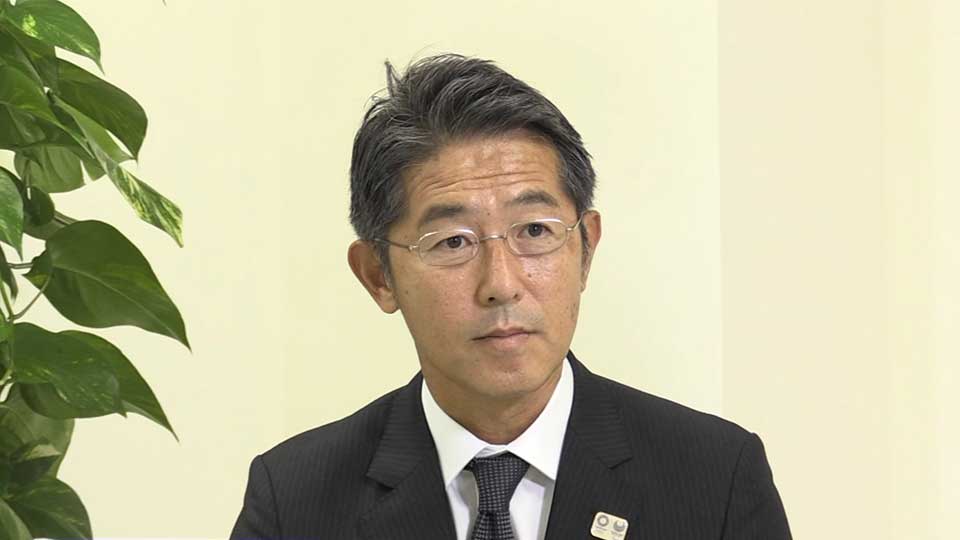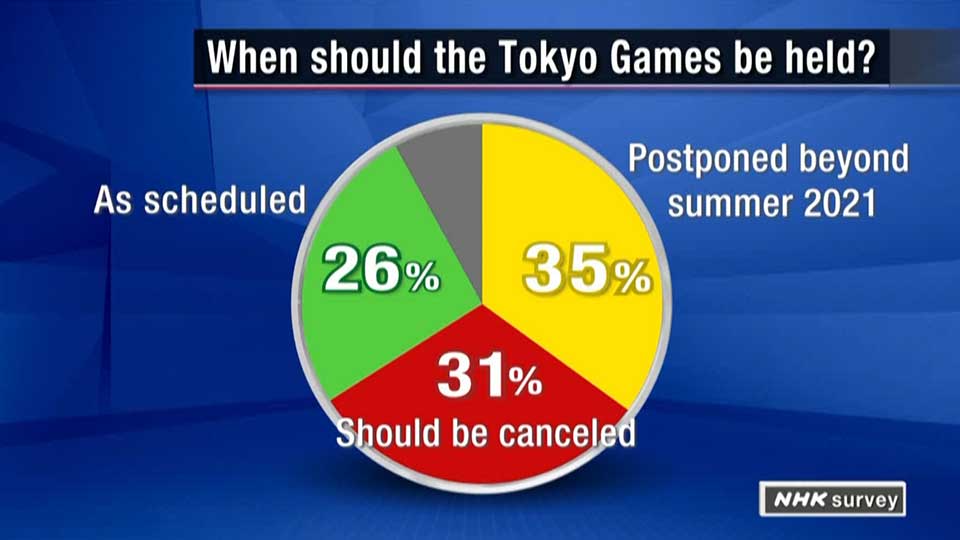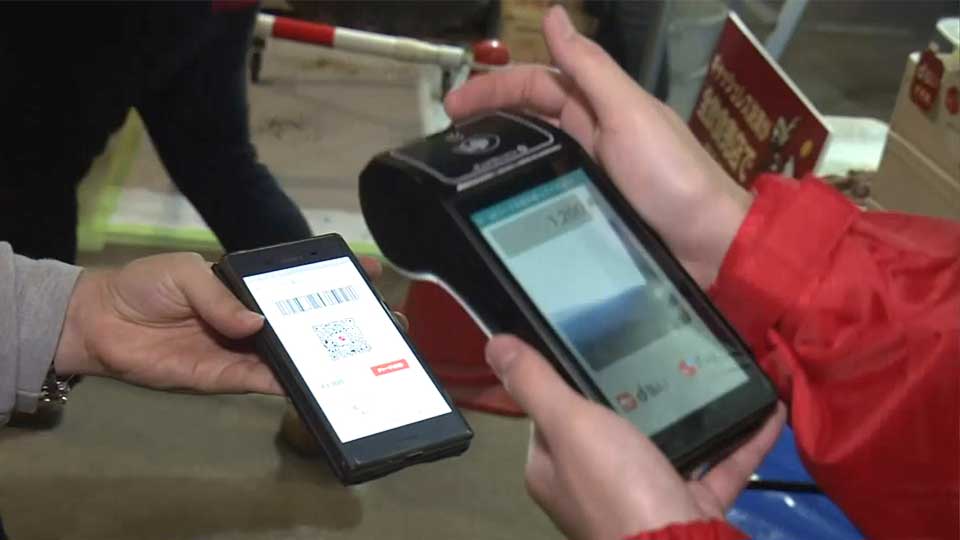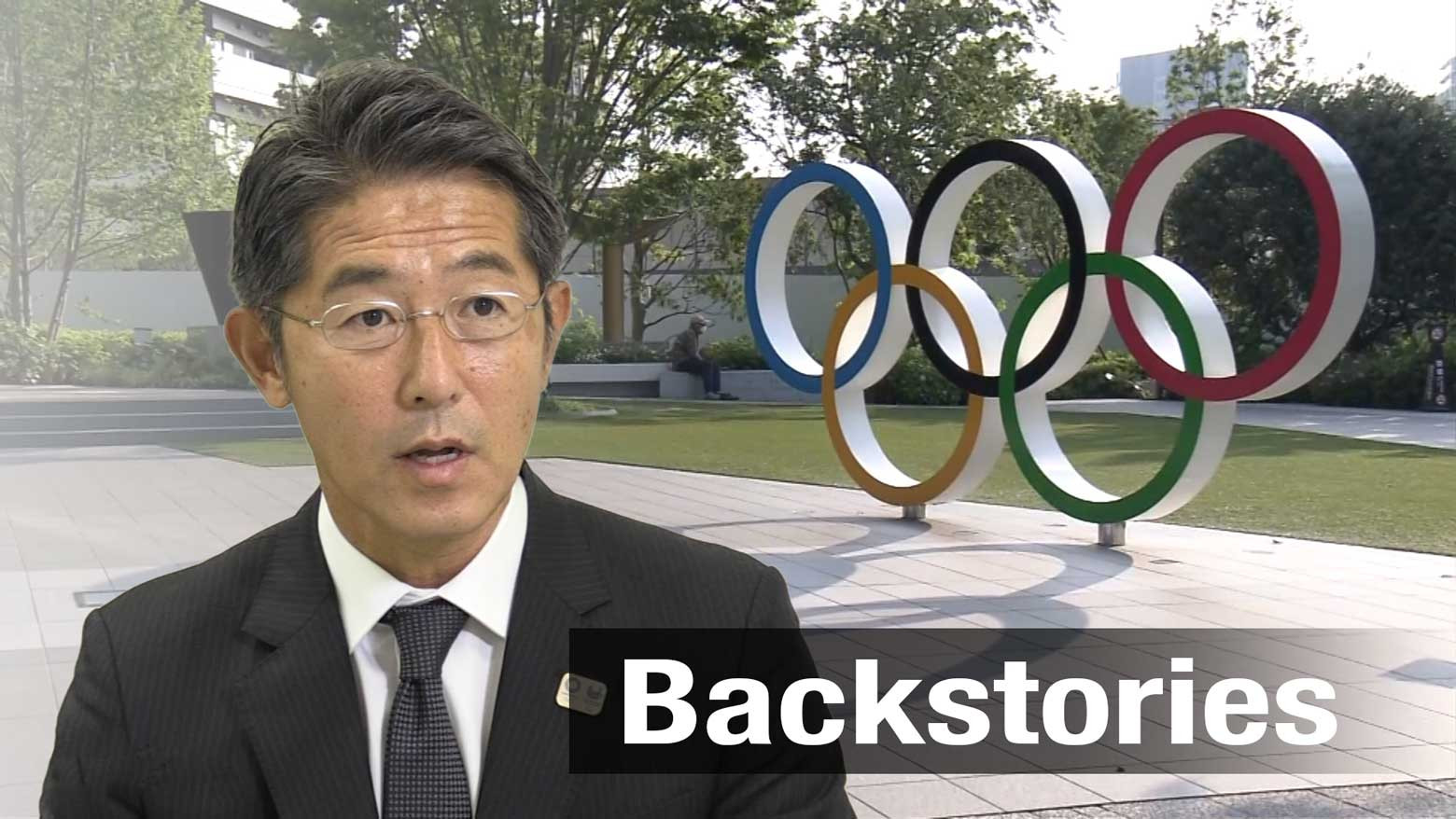Ishikawa: Do you think it's possible for the Games to be held as planned?
Mano: I think it's a good sign that some professional sports leagues have resumed in Japan and around the world. Japan's baseball and soccer leagues have even started allowing spectators into stadiums, albeit with limits.
The Olympics and Paralympics would be unthinkable if spectators were still being kept out of domestic sports events. Still, holding a multi-sport international event is unrealistic right now. So what we need to do right now is steadily reopen national competitions. By this fall, these should include high school and university sports. We can use this experience and know-how to prepare for the Games next July.

Ishikawa: Public opinion seems to be divided on holding the Games. 35% of respondents to an NHK survey think the Games should be postponed even further, and 31% think they should just be canceled. Only 26% say the Games should go ahead as planned.

Mano: I was also part of a team that conducted opinion polls on the Olympics and Paralympics. We carried out three nationwide polls, in two-week intervals. The percentage of respondents with negative responses did increase over the surveys. But nearly half of respondents in their late teens and twenties were positive. Many said they are looking forward to watching the competitions in person. I think we should try to hold the Games, with these younger generations in mind.
Ishikawa: Organizers say they're studying ways to simplify the Games. They also have to ensure a safe environment for the athletes and cut costs related to the postponement. Do you think they will be able to accomplish all of these things?
Mano: All these things are closely related. I think the organizers have to consider the Games in Tokyo not just as a one-time event, but a model case that can guide future events. They have to reduce the number of people involved in the Games, including volunteers, media personnel, and spectators. And the organizers should also consider staggering event times to avoid huge crowds. They need to think about specific entry and exit methods for athletes and other staff. The organizers should also be focusing on how people can avoid the so-called Three Cs: crowded places, close-contact settings, and confined and enclosed spaces.
It will be difficult to avoid the Three Cs in the athlete village, which really has no parallel in any other international competition. A lot of the Olympic spirit of friendship is built at the village, where athletes spend time together and socialize, so the organizers may not want to ruin that by setting too many restrictions.
Ishikawa: Many athletes may be feeling anxious about the current situation. What kind of measures should be taken on their behalf?
Mano: What the athletes are going through right now differs greatly depending on region. Those in East Asia, Southeast Asia, and Oceania have, to an extent, been able to resume normal life. On the other hand, those in the US and some parts of Europe continue to face difficult conditions. Those in India, Brazil, and some African nations as well. I think it will be hard to ensure that every athlete is equally prepared for the Games. At the same time, you obviously don't want athletes getting injured by resuming training and competition without sufficient preparation.
Securing a safe environment for them to train and compete in is the top priority. The organizers must take a step-by-step approach to this end.
Ishikawa: Finally, how do you think we can make the Games happen?
Mano: I think the key is what kind of digital measures organizers are able to take. For example, contactless identification for fans entering venues.

Technology will also make it easier to implement social distancing measures and ensure that spectators aren't grouped tightly together.
For example, stadiums and arenas in the United States have apps that show when bathrooms and concession stands aren't crowded.
Technology is an essential part of the fight against this pandemic, and I think it will also allow us to host the first ever digital Olympics and Paralympics. I think the Games will be a good opportunity to establish a new normal for attending sport events.

